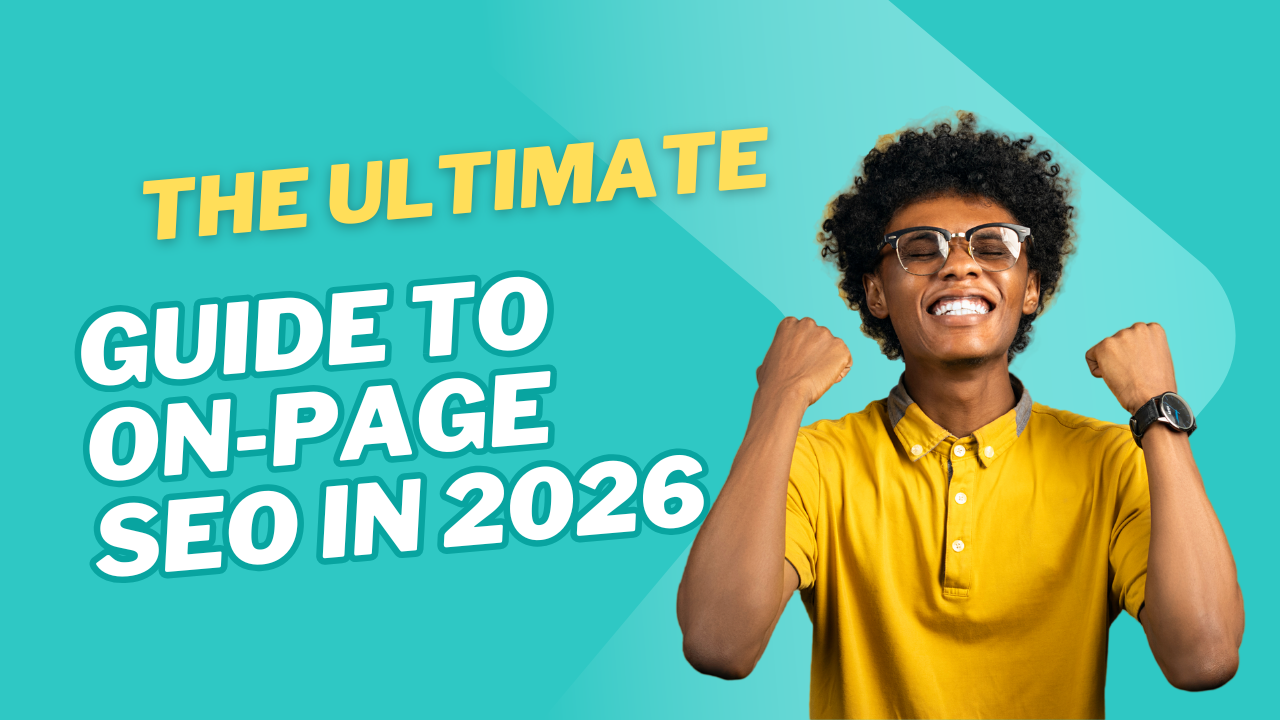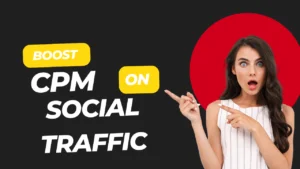The Ultimate Guide to On-Page SEO in 2026
In the ever-evolving world of digital marketing, SEO remains one of the most powerful strategies to ensure your website ranks well on search engines. While off-page SEO (such as backlinks) is crucial, on-page SEO is just as important for boosting your site’s search engine rankings and improving user experience. As search algorithms continue to evolve, especially with the rise of AI, it’s vital to understand how on-page SEO will change in 2026 and what tactics will help your content stand out.
Table of Contents
- The Importance of User Experience (UX) in On-Page SEO
- Advanced Keyword Optimization
- Content Quality Over Quantity
- Optimizing for Featured Snippets and Position Zero
- Voice Search Optimization
- Video and Visual Content Optimization
- Internal Linking and Content Structure
- E-A-T: Expertise, Authoritativeness, Trustworthiness
- AI and Automation in On-Page SEO
- Conclusion
1. The Importance of User Experience (UX) in On-Page SEO
User experience has become a crucial ranking factor, and this trend will only intensify in 2026. Google’s Core Web Vitals, which measure how fast, responsive, and stable your website is, are already ranking signals. By 2026, search engines will likely place even greater importance on UX.
- Fast Load Speed: Ensure your pages load quickly. Use tools like Google PageSpeed Insights to monitor and optimize speed.
- Mobile Optimization: Make sure your site is fully responsive and provides a seamless experience across all devices.
- Interactive Elements: Add elements like buttons, forms, and quizzes to engage visitors.
- Accessibility: Implement accessibility features, such as screen reader support and high-contrast text options.
2. Advanced Keyword Optimization
Keyword optimization remains a key component of on-page SEO, but in 2026, keyword research and implementation have evolved significantly.
- Focus on Search Intent: Keywords should match the user’s intent—whether they are looking for information, products, or services.
- Latent Semantic Indexing (LSI) Keywords: Use related terms to help search engines understand your content’s context.
- Long-Tail Keywords: Target specific long-tail keywords, especially with the rise of voice search.
- AI-Driven Keyword Research: Tools like SurferSEO and Ahrefs provide better insights into keyword opportunities.
3. Content Quality Over Quantity
The demand for high-quality content will continue to rise in 2026. Search engines are getting smarter at detecting low-value content. To stay competitive, focus on creating in-depth, authoritative content that provides real value.
- In-Depth Guides and Articles: Long-form content, like comprehensive guides, will perform well, but don’t sacrifice quality for length.
- AI and Expert Insights: While AI tools can assist with content generation, ensure expert insights are included to maintain authority.
- Content Updates: Refresh older content to keep it relevant with up-to-date statistics, examples, and data.
4. Optimizing for Featured Snippets and Position Zero
Featured snippets are the boxed information that appears at the top of search results. In 2026, they will likely be even more prominent.
- Answer Questions Clearly: Format your content to answer common questions directly (e.g., lists, bullet points).
- Structured Data: Implement schema markup to help search engines understand your content and increase chances of being selected for a featured snippet.
- Table of Contents: Adding a TOC can help Google identify key points quickly.
5. Voice Search Optimization
With the rise of voice assistants, voice search is becoming more popular. By 2026, voice search will account for a significant portion of search traffic.
- Natural Language Queries: Optimize for conversational queries like “What are the best SEO tools for website ranking?”
- Local SEO: Optimize for location-based searches, including location keywords and using Google My Business.
6. Video and Visual Content Optimization
As video content becomes essential, optimizing for video SEO will be vital in 2026.
- Video Optimization: Use descriptive titles, transcriptions, and closed captions. Embed videos in relevant content.
- Image SEO: Use high-quality images with optimized file sizes and descriptive ALT text.
7. Internal Linking and Content Structure
Proper internal linking helps users navigate your site and helps search engines index your pages efficiently.
- Link to Relevant Content: Ensure your internal links point to related articles to strengthen relevance.
- Anchor Text Optimization: Use descriptive anchor text that accurately describes the linked page’s content.
- Clear Content Hierarchy: Use logical headings (H1, H2, H3) to structure your page.
8. E-A-T: Expertise, Authoritativeness, Trustworthiness
Google’s E-A-T guidelines will continue to play a significant role in how your content ranks. Content creators need to prove their expertise, authority, and trustworthiness.
- Author Biographies: Include bios with credentials, especially for expert topics.
- Cite Authoritative Sources: Link to credible sources to back up claims.
- User Reviews: Incorporate user reviews and testimonials to build trust.
9. AI and Automation in On-Page SEO
AI-driven tools will continue to evolve and provide more advanced ways to handle on-page SEO tasks.
- AI-Generated Content Optimization: Use AI to help with content generation, but always ensure human oversight to maintain accuracy and relevance.
- Automated SEO Audits: Tools like SurferSEO and SEMrush offer AI-driven SEO audits that can instantly identify issues with your on-page SEO, saving time and effort.
10. Conclusion
On-page SEO in 2026 is about delivering value to users, optimizing content for search engines, and creating a seamless experience for both people and search bots. It’s no longer enough to simply add keywords and meta tags; you need to focus on providing high-quality, useful, and engaging content while ensuring that your website is technically optimized.
By keeping an eye on user experience, search intent, and AI-driven changes, you’ll be better prepared to thrive in the ever-changing world of SEO. Keep updating your strategy and adapt to the new trends, and you’ll stay ahead of the competition in 2026 and beyond.







